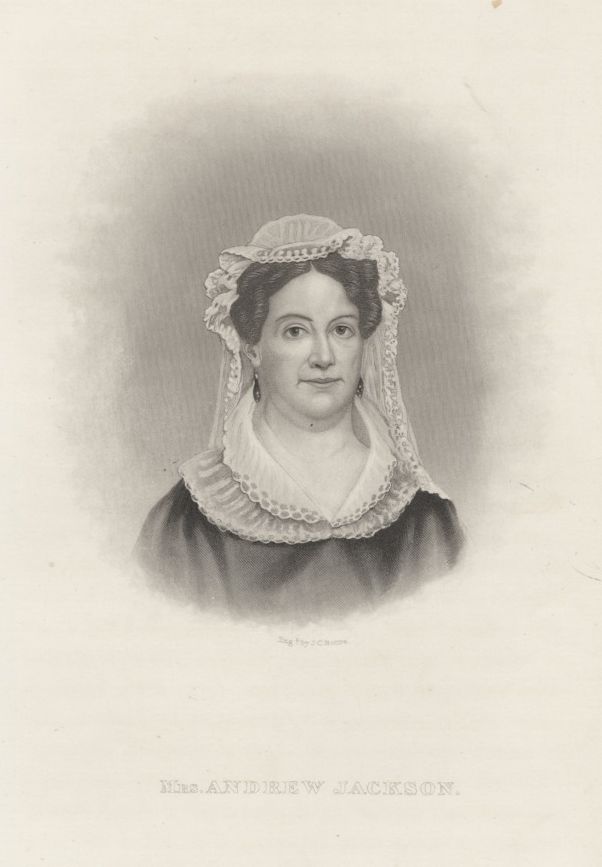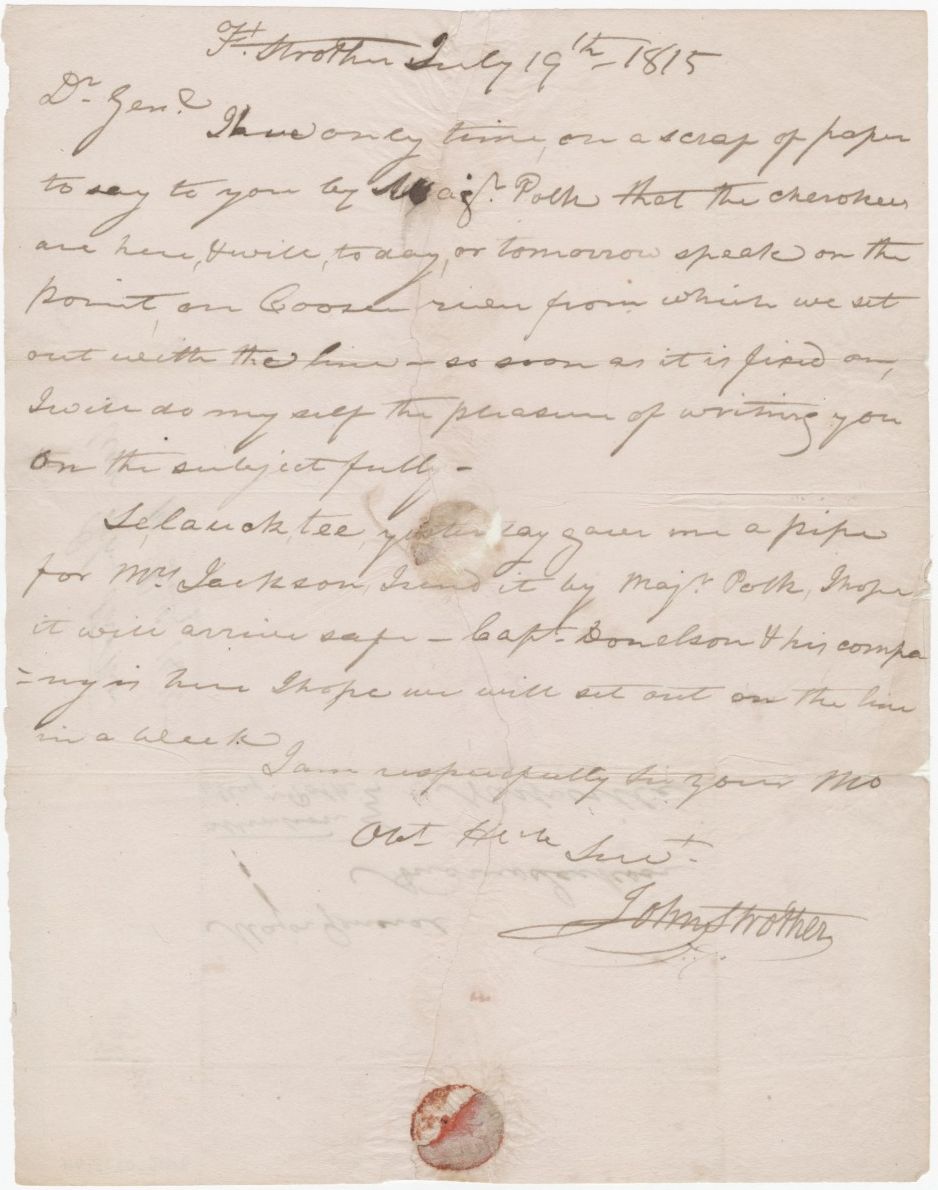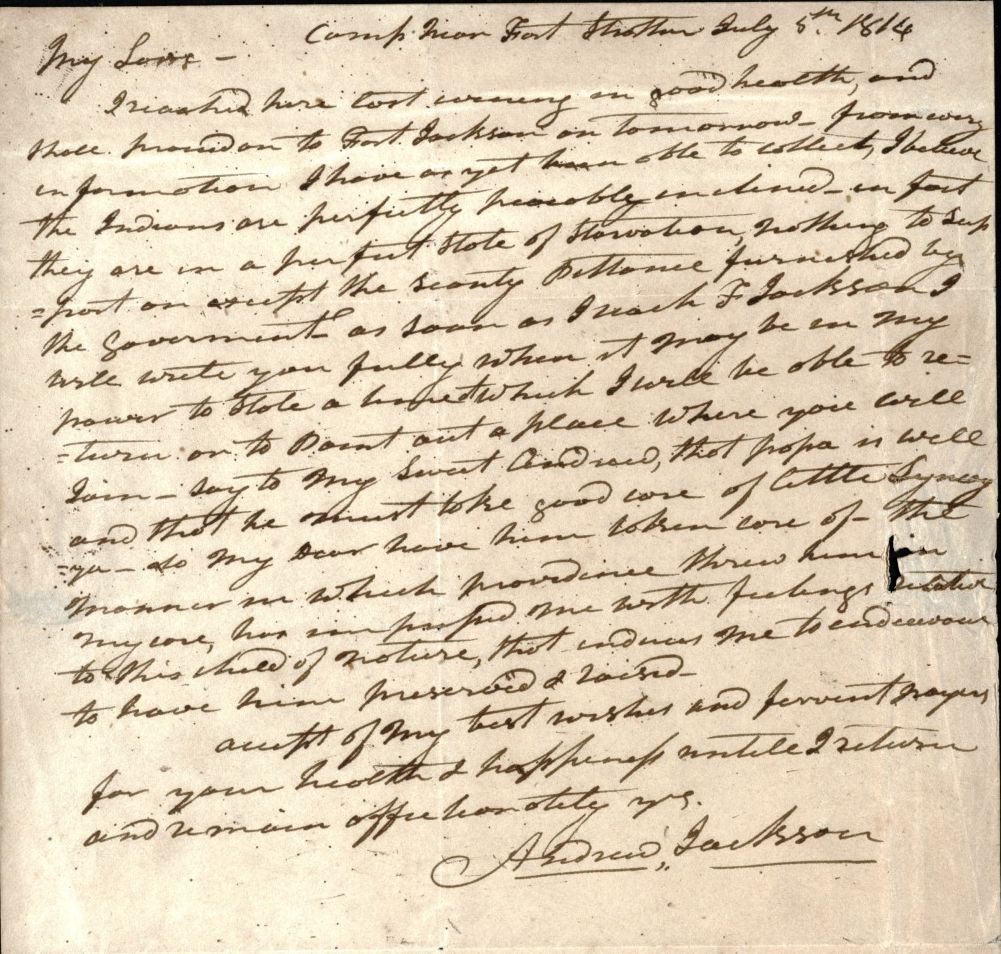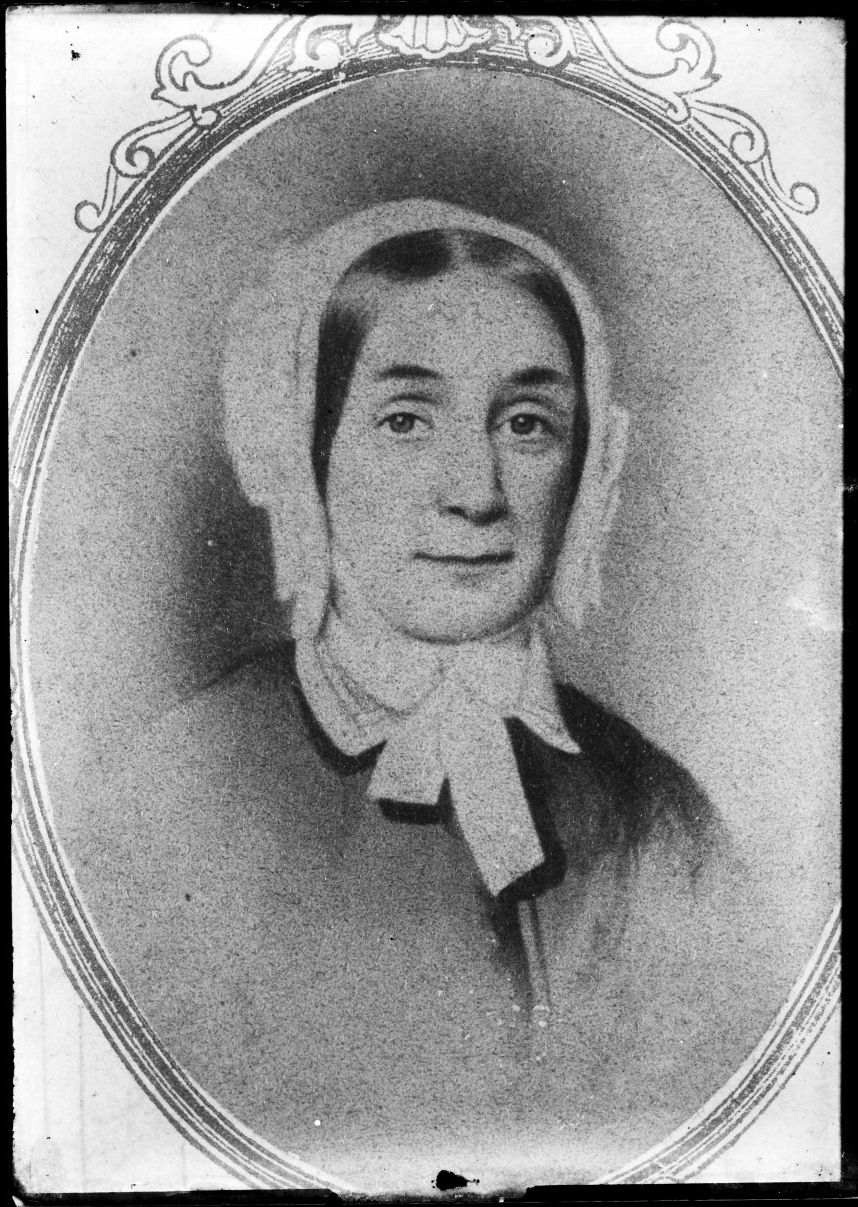Andrew Jackson met Rachel Donelson Robards not long after his arrival in Nashville in 1788, while staying at her mother’s boarding house. The historian James Parton described Rachel as the “best storyteller, the best dancer, the sprightliest companion, the most dashing horsewoman in the western country.” She and Andrew were twenty-one when they met and took an interest in each other. The two wed in the early 1790s, and in the more than three decades of marriage that followed, Andrew Jackson remained devoted to Rachel, writing to her often when he was away on active service. They are said to have shared a love for tobacco and whiskey, as well as dancing.
The topic of his marriage was an unusually sensitive subject for Jackson. When he met Rachel, she was separated from her abusive, alcoholic husband, Lewis Robards. Evidence suggests that Andrew and Rachel lived together as man and wife before the divorce from Robards had been legally granted. A marriage ceremony was said to have been performed in Natchez in 1791, and Jackson insisted their marriage was legal according to the “understanding of everyone in the country.” Even so, he and Rachel were married a second time, in January of 1794.
Not surprisingly, the circumstances of Jackson’s marriage to Rachel were dragged into public view when he became a candidate for national office. Pro-Adams pamphlets referred to Rachel as an adulteress. Jackson never forgot or forgave these aspersions. The intense public scrutiny of her private life perhaps led Rachel to dread the prospect of life in Washington after her husband won his second bid for the presidency, in 1828. She died suddenly in late December 1828 at the Hermitage, the Jacksons’ home near Nashville, at the age of 61, a few weeks before Jackson’s inauguration.

Mrs. Andrew Jackson
1883; steel engraving
by John Chester Buttre, engraver
The Historic New Orleans Collection, 2014.0156

Letter mentioning an Indian pipe for Rachel Jackson
July 19, 1815; manuscript letter
by John Strother, author
The William C. Cook War of 1812 in the South Collection at The Historic New Orleans Collection, MSS 557, 2006.0313.44
Andrew Jackson remained devoted to his wife, Rachel, and wrote to her often when he was on active service. They are said to have shared a love for tobacco and to have often smoked their pipes together when he was at home.

Letter from Andrew Jackson to Rachel Jackson mentioning the orphan Lyncoya
July 5, 1814; manuscript letter
by Andrew Jackson, author
The William C. Cook War of 1812 in the South Collection at The Historic New Orleans Collection, MSS 557, 2014.0493
Jackson sends his regards to his wife and son, Andrew Jr., and asks that they "take good care of little Lyncoya," the orphaned Creek Indian boy that Jackson had sent to his Tennessee home, the Hermitage, during the Creek War.

Photograph of a painted portrait identified as Rachel Jackson
ca. 1915; glass plate negative
by an unknown photographer
The Historic New Orleans Collection, 1987.144.106
